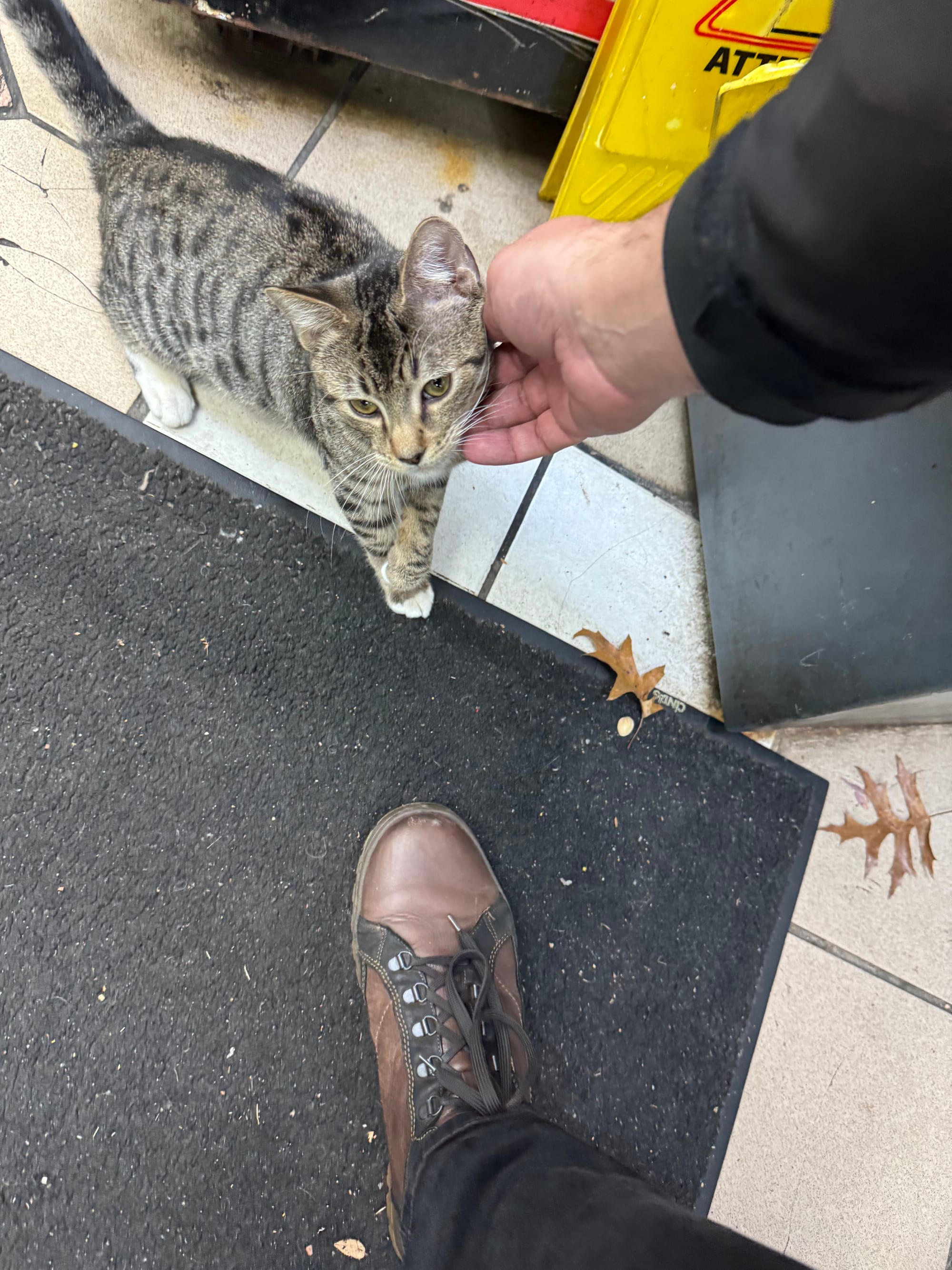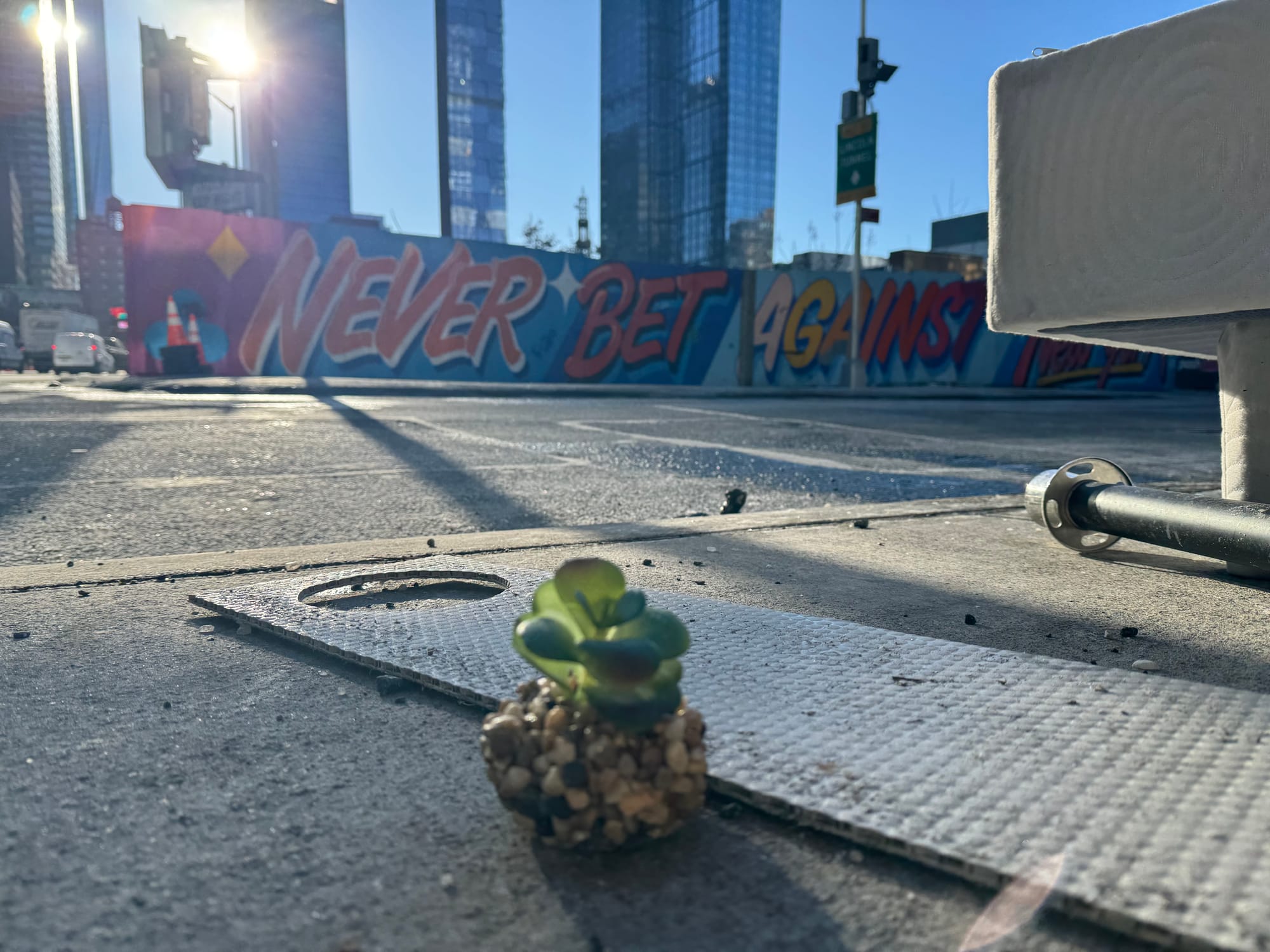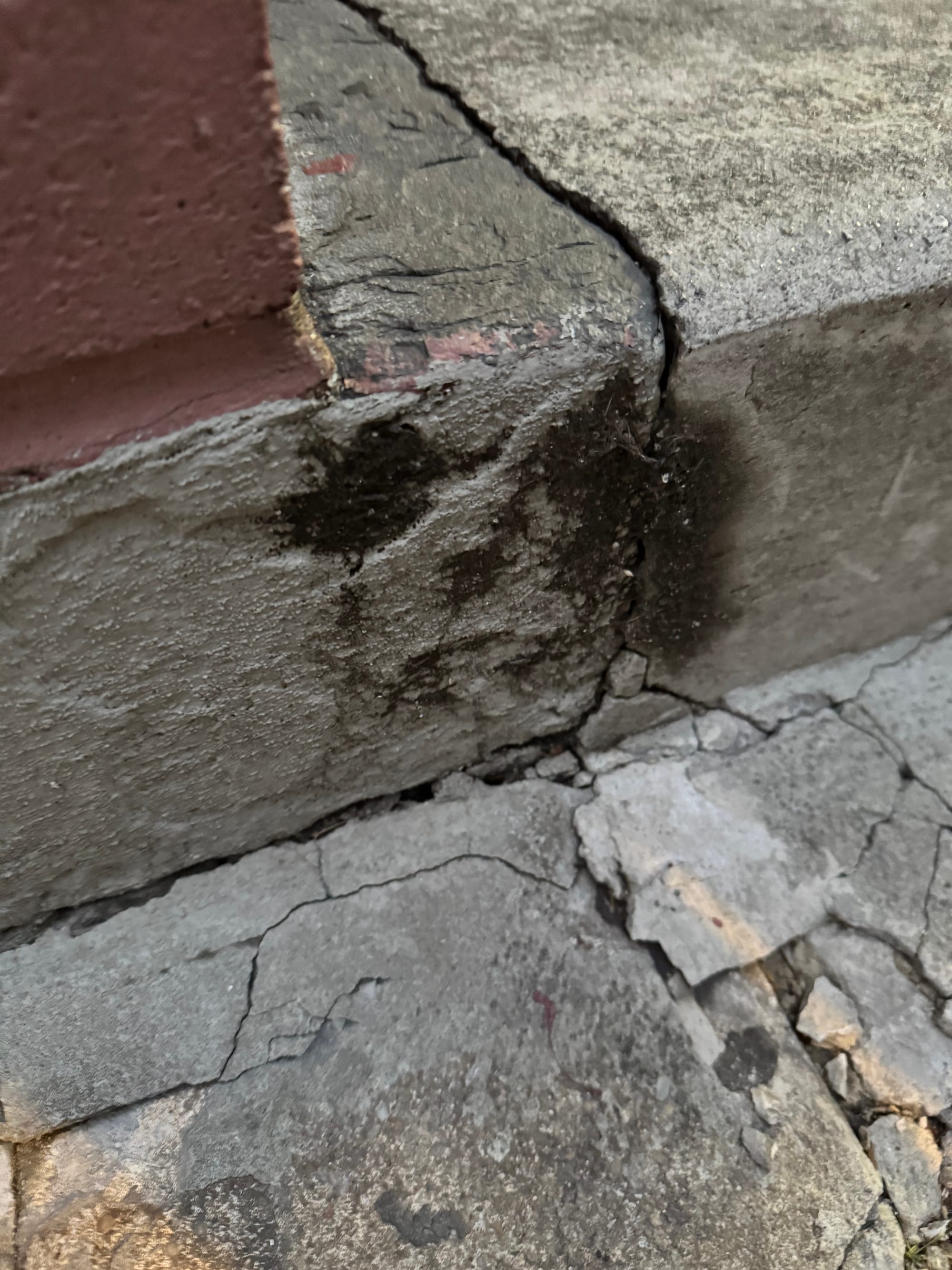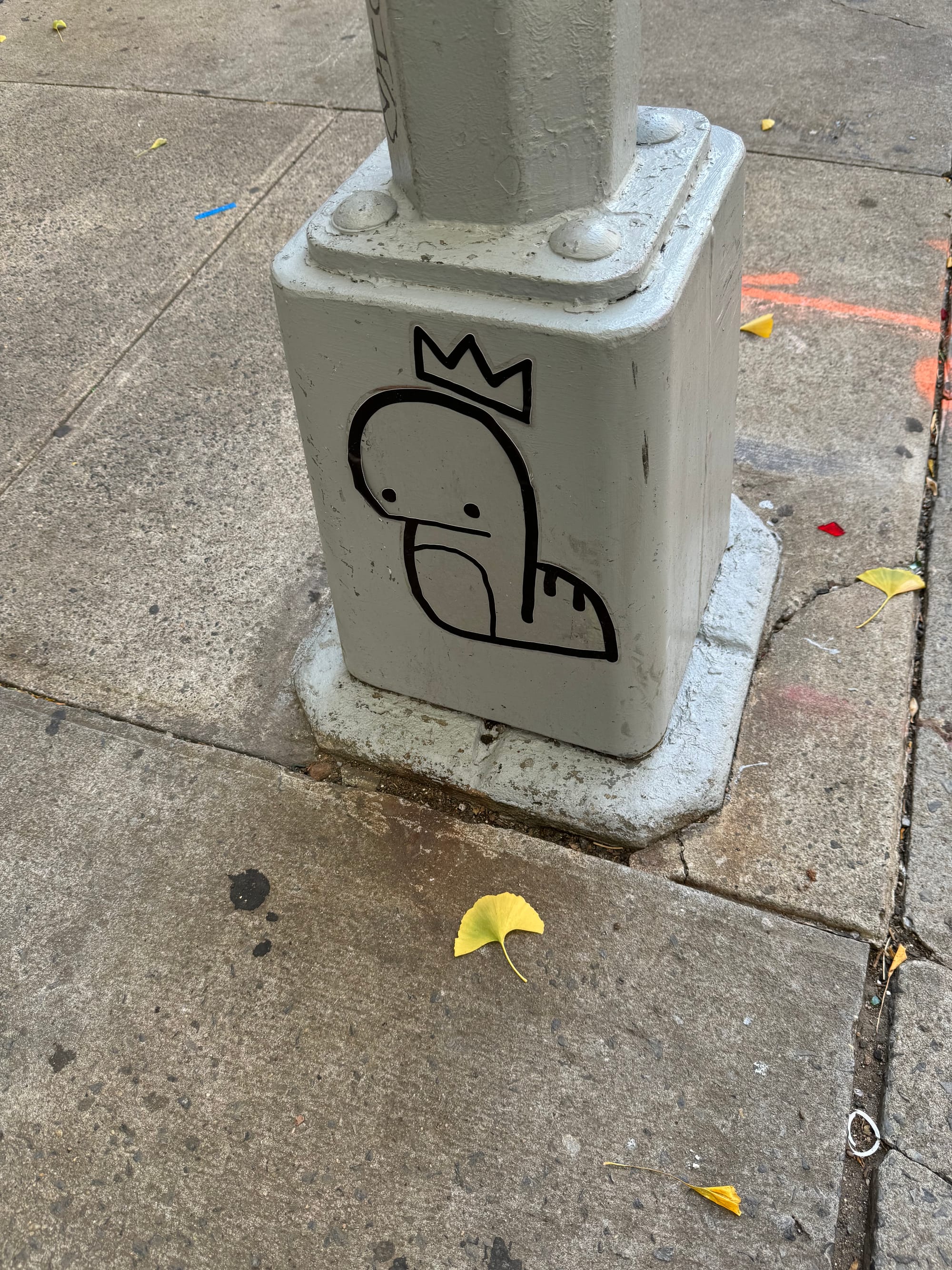Wandering is Good for You

Go out the door.
Go the opposite way you normally do.
There's no point to what you're doing.
You're not trying to accomplish anywhere.
You might have a goal, but it's stupid.
Take a picture of a flower. Pet a cat. Talk to a stranger.
You're not going anywhere, so you have the slack to look around.
You have time to think and feel.
You are wandering.
-What is wandering?
-Wandering is using intuition to move through territory.
-What is intuition?
-How much time you got?

Humans have been wandering since the beginning.
Wandering is just walking around with a sense of wonder, which is good for your body and your brain and your 'spirit'.
But because industrial society cuts time
into units of value,
any activity without clear profit
is discouraged.
The benefits of wandering are indirect, hard to measure.
Like, some people are always doing it, but what if humans were wandering a lot more?

Paracelsus
Franz Kafka
Hypatia
Nikola Tesla
Socrates
Alexander the Great
William S. Burroughs
Walt Whitman
Margaret Mead
Henry David Thoreau
Herman Melville
Jack London
Guy DeBord
History is littered with famous wanderers. They're the mixing sticks.
-How did humans spread across the globe?
-Wandering.
For thousands of years, our species wandered out of Africa, across the land bridge, and over the oceans and the plains.
We kept pushing at the edge of the unknown, using our ever-increasing critical-thinking - in concert with a separate system which can best be described as intuition - to discover new territory and new resources, changing our understanding of reality in the process, and occupying all the lands of earth without cellphones, compasses or even maps to guide us.
We used our big brains and weird flexy tongues to communicate with each other, learning as we went and building up generational knowledge and experience. that it recedes into the past that old data sinks down into the programming stack until it becomes almost pre-installed in the unconscious mind.

5 Benefits of Wandering
- Moves the bones, builds strength and endurance
- Relaxes and stimulate the mind
- Builds confidence and people skills
- Yields loot
- Connects you to people and places

Intuition.
It's the computing power of the unconscious mind. It dwarfs your regular ability to reason. It can bring in stuff you don't even know and register it before you even start adding up the variables.
So it's wisdom, it's just a different system than our conscious awareness. We tend to forget this system exists, because we don't have much language for it.
Intuition is generational knowledge. Lived experience. And yes, it is mysterious. You're electric meat. The world is magical. Sit the fuck down.
Wandering makes you more sensitive.
It's a peculiar thing
that the industrial system
which runs on people
exposing themselves to toxic conditions
also encourages people
to be insensitive to the world around them.
SENSITIVITY IS A GOOD THING.
It means you sense things. You notice the impact the world has on you, and the impact you have on the world.
Are there better and worse ways to respond to hardship? Of course.
But anybody complaining about 'being too sensitive' is literally dumb. Why wouldn't you want your SENSE-ory systems to be as SENSE-itive as possible???

The wanderer is a candy-hog. A flower-sniffer. A cat-petter. Willing to stop on the street for whatever reason. Willing to crash through the bushes for a view or a shortcut. The wanderer is in love with the world, and the more they calibrate to an area, the more the world usually loves the wanderer back.
3 Basic Practices of Wandering
2 - Vary the Intensity
Walk fast. Walk slow. Go somewhere uncomfortable. Go somewhere where you're completely relaxed. Change it up. Always be varying the intensity of your experience, then layer that in with...
3 - Respond to Subtle Input
BE SENSITIVE TO THE WORLD AROUND YOU. Respond to things that are low on the register.
See a flash of color? Stop and look at it (out of the flow of traffic).
Like somebody's shoes? Compliment them.
Catch a whiff of a pattern you've never noticed before? Discuss it with the other wanderers.
Humans thrived as a species because of our sensitivity to the world around us, and our ability to communicate about and respond to those inputs.
1 - Frequent, Frivolous Decisions
Headed out for a wander? Start with a lightly held goal, and don't be afraid to delay or abandon it if something else comes up. Go through a door, then come back out again. Speak to someone spur of the moment. Change direction, change goal, change mindset. The slighter the reason, the better.
Make spur of the moment decisions. Trust your intuition. Trust your gut. It's using a lot more data in it's analysis.
By using this method, you end up in places you don't know you don't know about, and that's one of the major benefits of wandering. It pushes you to live on a bigger map.

Interweaving
When you interweave the 3 practices above at the same time, you and your group will start changing your brainwave patterns and creating a different experience of reality. You'll leave the mundane world, and enter the special world, where there is time and space for learning and wonder.
Wandering is a revolutionary act. When you wander you subvert the will of the ownership of the industrial system, and you build ties to people in radically different silos, making the world a little more compassionate and a little more connected.
The wander is over when there's only one person left. If you're the last one, go home, otherwise you might end up in a cell or strapped to a bed with a view of some treeees.
Most importantly:
Stop making sense.
The dérive will find you.

Member discussion